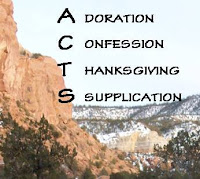I wonder
how often we are oblivious to the needs around us. Unless an injustice is
brought to our attention, we can be too busy with our own routines to notice. News
stories can, in fact, desensitize us because there is sooo much violence and
injustice that we can start to feel that we can do nothing.
As part of
our work at living more fully into our baptismal vows, we might need to become
more aware and more active at listening. I don’t just mean listening to what is
said, but more often than not to what is not said. Yes, there is pain and
suffering. Yes, we have promised to make a difference. Yes, it can be
overwhelming. Perhaps we need to ask, "Lord, which thing is speaking to my heart?" After the Sandy Hook Elementary tragedy people responded with compassion in many ways. And so it is after any disaster. Day-to-day struggles to survive sometimes don’t make it to the news, but are just as important.
Children,
who were born in this country and are able to attend school in the US, but
whose parents cannot cross to go to school events or teacher conferences. Families
who live in such poverty that collecting cans is a means of getting money to
buy food.Children
who do not have a blanket or even underwear. Women who
are raising their children alone because the men in their lives have been
killed by drug cartels.
Amid this,
one woman is empowering women to create cottage industry and helping provide
food, coats, blankets, and other necessities on both sides of the border. She
heard the need with her heart and was moved to respond. She did not know what
she was getting into, but she heard God saying, “Feed my sheep” and “whatever
you did for the least of these, you did for me”. In the eyes of the young and
old she sees God and responds. You can learn more about helping the Las Palomas ministry.
I have
another friend who heard a different need. Her heart heard the need of families
who are living under the shadow of having a family member incarcerated. She
built a ministry to those children and parents based on sharing the Bible, a
meal, crafts, and music in a ‘party’. It has expanded across the nation and
there have even been parties in Africa and India. Wings Ministry now has a
weekly program to help build assets and support the children and families even
further. God is in the least of these-the victims of bad decisions by a parent or other family member. They are learning that God hasn't forgotten them.
There are
many other such stories. Ministries to the disenfranchised that quietly go on,
run by women and men who heard the need and responded. We may not all be able
to actively work with the homeless or the poor or the sick or those in prison.
What we can do is ‘hear’ the need and respond in whatever way we are able.
Maybe it is filling a shoebox with toiletries and gifts at Christmas for Las
Palomas. Perhaps it is a cash donation toward a Wings party. It could be
bringing canned goods for your church or local food pantry.
Just
possibly God is calling you to personally respond to something you see on the
news. Listen to the needs and then listen to how God is calling you to respond.
Next
Sunday is Palm Sunday and we will enter the journey to the Cross. Come and see
what Love our Father has for us. 






